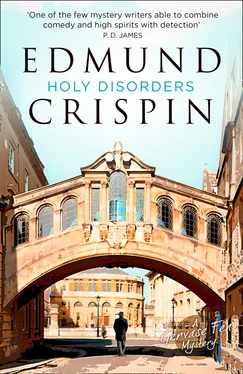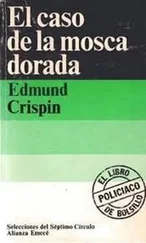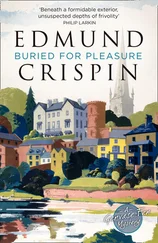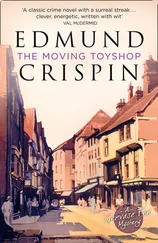Geoffrey embarked without enthusiasm on a second-rate witticism. ‘Not the author of Tom Jones , I suppose?’ He regretted it the moment it was out.
‘ Tom Jones ? Never heard of it. A book, is it? Don’t get much time for reading. And you?’
‘I beg your pardon?’
‘I mean, I introduced myself, so I thought you—’
‘Oh, yes, of course, Geoffrey Vintner. And I must thank you for acting as promptly as you did; heaven knows what would have happened to me if you hadn’t interfered.’
‘So do I.’
‘What do you mean – Oh, I see. But it occurs to me now, you know, that we really ought to have stayed and seen the police. It’s all very well dashing off like a couple of schoolboys who’ve been robbing an orchard, but there are certain proprieties to be observed.’ Geoffrey became suddenly bored with this line of thought. ‘Anyway, I had to catch a train.’
‘And our friend,’ said Fielding, ‘was presumably trying to stop you. Which brings us back to the question of what it’s all about.’ He wiped his brow again.
Geoffrey, however, was distracted, idly musing on a Passacaglia and Fugue commissioned from him for the New Year. It had not been going well in any case, and the interruption of his present mission seemed unlikely to prosper it. But not even prospective oblivion will prevent a composer from brooding despondently and maddeningly on his own works. Geoffrey embarked on a mental performance: Ta-ta; ta-ta-ta- ti -ta- ti …
‘I wonder,’ Fielding added, ‘if they’ve anticipated the failure of the first attack, and provided a second line of defence.’
This unexpected confusion of military metaphors shook Geoffrey. The spectral caterwaulings were abruptly stilled. ‘I believe you said that to frighten me,’ he said.
‘Tell me what’s going on. If I’m an enemy, I know already—’
‘I didn’t say—’
‘And if I’m not, I may be able to help.’
So in the end Geoffrey told him. As precise information it amounted to very little.
‘I don’t see that helps much,’ Fielding objected when he had finished. He examined the telegram and letter. ‘And who is this Fen person, anyway?’
‘Professor of English at Oxford. We were up together. I haven’t seen much of him since, though I happened to hear he was going to be in Tolnbridge during the long vac. Why he should send for me—’ Geoffrey made a gesture of humorous resignation, and upset the butterfly-net, which was poised precariously in a transverse position across the interior of the cab. With some acrimony they jerked it into place again.
‘I can’t think,’ said Geoffrey, after contemplating for a moment finishing his previous sentence and deciding against it, ‘why Fen insisted on my bringing that thing.’
‘Rather odd, surely? Is he a collector?’
‘One never quite knows with Fen. In anyone else, though – well, yes, I suppose it would seem odd.’
‘He seems to know something about this Brooks business.’
‘Well, he’s there , of course. And then,’ Geoffrey added as a laborious afterthought, ‘he’s a detective, in a way.’
Fielding looked disconcerted; he had evidently been reserving this rôle for himself and disliked the thought of competition. A little peevishly he asked:
‘Not an official detective, surely?’
‘No, no, amateur. But he’s been very successful.’
‘Gervase Fen – I don’t seem to have heard of him,’ said Fielding. Then after a moment’s thought: ‘What a silly name. Is he in with the police?’ His tone suggested Fen’s complicity in some orgiastic and disgraceful organization.
‘I honestly don’t know. It’s only what I’ve heard.’
‘I wonder if you’d mind my coming with you to Tolnbridge? I’m sick of the store. And with the war on, it seems so remote from anything—’
‘Couldn’t you join up?’
‘No, they won’t have me. I volunteered last November, but they graded me four , I joined the ARP, of course, and I’m thinking of going in for this new LDV racket, but blast it all—’
‘You look healthy enough,’ said Geoffrey.
‘So I am. Nothing wrong with me except shaky eyesight. They don’t grade you four for that, do they?’
‘No. Perhaps,’ Geoffrey suggested encouragingly, ‘you’re suffering from some hidden, fatal disease you haven’t known about.’
Fielding ignored this. ‘I want to do something active about this war – something romantic.’ He mopped his brow again, looking the reverse of romantic. ‘I tried to join the Secret Service, but it was no good. You can’t join the Secret Service in this country. Not just like that.’ And he slapped his hands together to indicate some platonic idea of facility.
Geoffrey considered. In view of what had happened it would almost certainly be very useful to have Fielding with him on his journey, and there was no reason to suspect him of ulterior motive.
‘…After all, war hasn’t become so mechanized that solitary, individual daring no longer matters,’ Fielding was saying; he seemed transported to some Valhalla of Secret Service agents. ‘You’ll laugh at me, of course’ – Geoffrey smiled a hasty and unconvincing negative – ‘but in the long run it is the people who dream of being men of action who are men of action. Admittedly Don Quixote made a fool of himself with the windmills, but when all’s said and done, there probably were giants about.’ He sighed gently as the taxi turned into the Marylebone Road.
‘I should very much like to have you with me,’ said Geoffrey. ‘But look here – what about your job? One must have money.’
‘That’ll be all right. I have some money of my own.’ Fielding assembled his features into a perfunctory expression of surprise. ‘Oh, I ought perhaps to have mentioned it. Debrett, Who’s Who , and such publications, credit me with an earldom.’
Geoffrey summoned up a cheerful laugh, but there was something in Fielding’s assurance which forbade him to utter it.
‘Only very minor, of course,’ the other hastened to explain. ‘And I’ve never done a thing to deserve it, I inherited it.’
‘Then what on earth,’ said Geoffrey, ‘were you doing in that shop?’
‘Store,’ Fielding corrected him solemnly. ‘Well, I heard there was a shortage of people to serve in shops, owing to call-up and so on, so I thought that might be one way I could help. Only temporarily, of course,’ he added warily. ‘Just as a joke,’ he ended feebly.
Geoffrey suppressed his merriment with difficulty.
Fielding suddenly chuckled.
‘I suppose it is rather preposterous, when you come to think of it. By the way’ – a sudden thought struck him – ‘are you Geoffrey Vintner, the composer?’
‘Only very minor, of course.’
They surveyed one another properly for the first time, and found the result pleasing. The taxi clattered into the murk of Paddington. A sudden noise disturbed them.
‘Well, I’m damned,’ said Fielding. ‘The bloody net’s fallen down again.’
2
Do not Travel for Pleasure
| A crowd is not company, and faces are but a gallery of |
| pictures, and talk but a tinkling cymbal where there is no love. |
| BACON |
After the dim, barn-like vastness of Waterloo, Paddington appeared like an infernal pit. Here there was not the order, the strict division and segregation of mechanical and human which prevailed at the larger station. Inextricably, engines and passengers seethed and milled together, the barriers provided for their separation seeming no more than the inconvenient erections of an obstacle-race. The crowds, turgid, stormy, and densely-packed, appeared more likely to clamber on to the backs of the trains, like children piling on to a donkey at the seaside, than merely to board them in the normal way. The locomotives panted and groaned like expiring hedgehogs prematurely over-run by hordes of predatory ants; any attempt at departure, one felt, must infallibly crush and dissipate these insects in their thousands – it would be impossible for them to disentangle themselves from the buffers and connecting-rods in time.
Читать дальше












